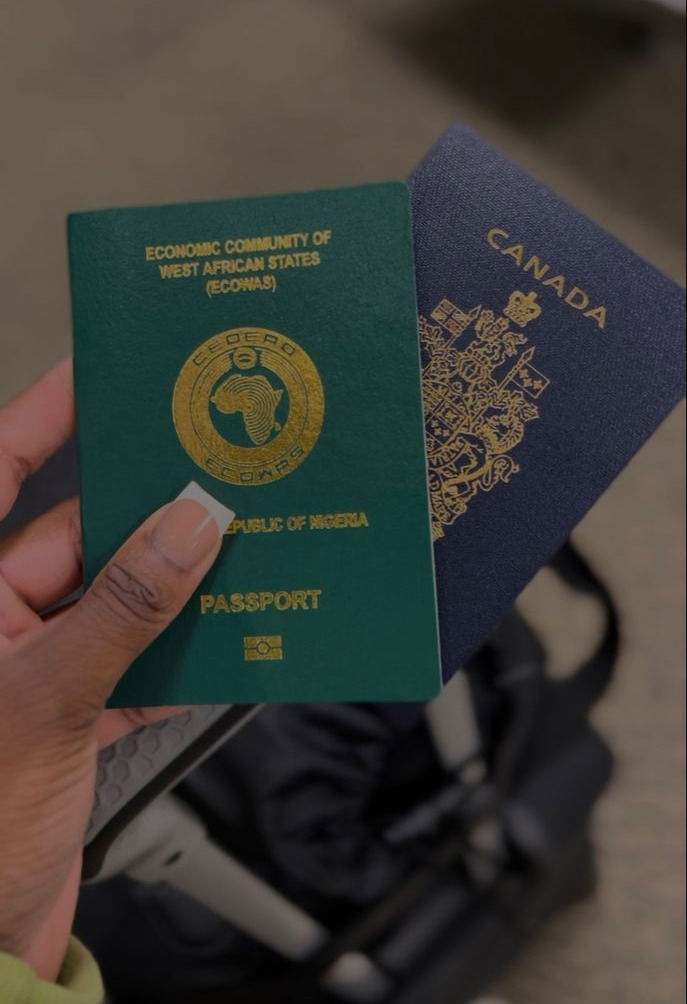A Foreign Passport Will Not Redefine the Nigerian Traveler’s Narrative

For many Nigerians, international travel presents numerous obstacles, including visa denials, extensive documentation requirements, and heightened scrutiny at immigration checkpoints. These challenges have led some individuals to seek second passports from other nations, believing that this will provide a lasting solution to travel-related difficulties. While a foreign passport may offer individual benefits, it does not address the fundamental issue: the global perception of Nigerian travelers. The true solution lies in reshaping this narrative through positive representation, responsible travel practices, and diplomatic advocacy.
The Limitations of a Second Passport
It is indisputable that certain passports provide greater global mobility, often allowing visa-free access to numerous destinations. Consequently, some Nigerians opt to acquire foreign citizenship as a means of circumventing the systemic barriers they encounter. However, while this strategy may ease personal travel experiences, it does not alter the deeply ingrained stereotypes associated with Nigerian travelers. A Nigerian-born individual, even with a second passport, may still face increased scrutiny due to their name, accent, or documented birthplace. Many Nigerian dual citizens continue to experience delays and suspicion at immigration checkpoints, demonstrating that the challenge is not merely one of documentation but of perception.
Reshaping the Global Perception of Nigerian Travelers
If a passport alone is insufficient to change the narrative, a more strategic approach is required. Addressing the misconceptions surrounding Nigerian travelers necessitates a collective effort to foster a more positive global image. Below are key initiatives that can contribute to this objective:
1. Increasing Positive Representation of Nigerian Travelers A significant factor in shaping global perceptions is the frequency and manner in which Nigerians engage in international travel. The greater the number of Nigerians who travel for tourism, business, and cultural exchange, the more difficult it becomes to sustain negative stereotypes. By ensuring that Nigerian travelers are seen engaging in lawful and responsible travel, a shift in perception can be achieved over time.
2. Controlling the Narrative Through Media and Storytelling The portrayal of Nigerian travelers in international media is often skewed toward negative incidents. If Nigerians do not actively participate in telling their own travel stories, these narratives will continue to be defined by external sources. Social media platforms, travel blogs, and digital content provide an opportunity for Nigerians to showcase their experiences, highlight their cultural engagements, and redefine their global identity as travelers, not merely as migrants.
3. Enhancing Nigeria’s Tourism Image A country’s global perception is closely tied to the way it is represented in the tourism industry. Nations such as Rwanda, Ghana, and South Africa have successfully rebranded themselves as attractive destinations, thereby improving the global treatment of their citizens abroad. Nigeria must invest in a more favorable tourism image to ensure that its citizens are regarded as global tourists rather than individuals seeking escape.
4. Establishing Stronger Travel Communities Individual travelers often face difficulties navigating the complexities of international travel, but a well-organized community of Nigerian travelers can provide guidance, support, and advocacy. Creating networks where experienced travelers mentor first-time explorers, share visa application strategies, and provide real-time assistance can empower Nigerians to travel more confidently and responsibly.
5. Advocating for Improved Diplomatic Relations While individual actions play a critical role in shifting perceptions, governmental intervention remains essential. Nigerian authorities must actively engage in diplomatic negotiations to establish fairer visa policies, reduce discriminatory travel restrictions, and advocate for the equitable treatment of Nigerian travelers. Greater engagement with foreign governments can foster policies that recognize Nigeria as a country of legitimate tourists, business professionals, and global citizens. Acquiring a foreign passport may provide a temporary solution for an individual traveler, but it does not address the broader systemic challenges Nigerians face on the global stage. The true path to change lies in collective efforts to promote responsible travel, share positive stories, and advocate for diplomatic improvements. By actively engaging in these initiatives, Nigerians can reshape the narrative surrounding their travel experiences, ensuring that the same barriers no longer hinder future generations. The solution is to travel and be seen traveling with integrity and purpose.


